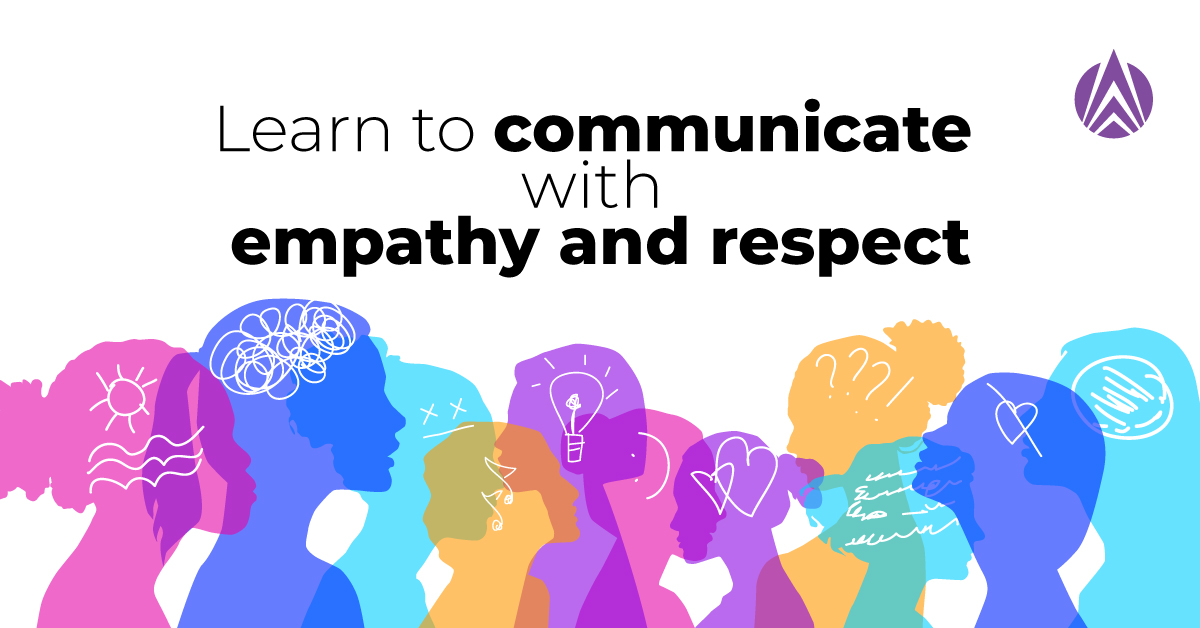Have you ever wondered why it happens so often that even if we speak the same language, we don’t understand each other? Worse, our communication induces quarrels, and instead of getting closer, we end up hurting each other. We have good intentions, but the other person understands it the other way round, and the relationship weakens and fades at a terrifying pace. This happens both in our personal and professional life.
Nonviolent communication emphasizes that it is important to express our wishes and feelings plainly with mutual understanding and avoid judgmental statements. Such communication starts with ‘I’ rather than attacking with a ‘You’. In the book ‘Nonviolent Communication: A Language of Life’, Marshall B. Rosenberg shares his insight about communicating effectively and openly by comparing the giraffe and jackal language.
Giraffe language
The giraffe is a mammal with the largest heart in relation to its body weight. Thanks to its long neck, the giraffe has a broad perspective and observes the situation from above.
Giraffe language is a ‘heart language’ which starts with ‘I-communication’. The giraffe wants to listen to the others but also to be understood. Empathy and respect drive its relationships. If a conflict occurs, the giraffe tries to understand the other side’s needs while not neglecting its own needs and feelings. There are four steps in giraffe communication:
Facts
In giraffe language, we first describe the facts and name the real situation, which evokes certain emotions, i.e., “you didn’t prepare the presentation”. It is important that our announcement doesn’t contain any judgments or accusations. Otherwise, our recipient would try to defend her/himself and refuse to accept our point of view. Therefore, statements such as “you never prepare the presentations on time,” “we should have thought that you would be late with the presentation“, “are you able to do anything on time?” are judgments and must be avoided at any cost.
Emotions
After describing the facts, we should verbally express our feelings that arise due to the situation. Describing our own emotions plays a role similar to a valve in the balloon. We should express our feelings, so they don’t accumulate in our heads and explode uncontrollably at a later point. It is better to avoid saying “You are making me sad and irritated,” because the word ‘You’ makes the statement accusative. It would be ideal to say: “I feel irritated when I provide you with a task which is not completed on time, and I have to justify our team in front of the manager“, “I am really sad and disappointed because …”, “I feel angry because…”
Own need
After this, we can articulate our need that has not been fulfilled. It is easier to understand each other if we discuss our needs instead of criticizing and pointing out failures. We can say: “It is important for me to have the tasks delivered on time” or “I understand that presentations take time, but we need to show our clients how the system works“.
Wish
Next, we can formulate a specific wish to help fulfill the need. We must not assume that the other person knows exactly what we think and want, and it is important to avoid blackmailing or manipulation. Our interlocutor must be free to answer the wish. We must specify what the other person should do: “I would like to ask you to make the presentation on time next week“. Remember to use the affirmative rather than the negative form. Instead of “Don’t be lazy and do your job on time,” say, “I wish you could spend more time on doing your tasks correctly“.
Jackal language
Jackal communication starts with ‘You’ and is full of judgments, criticism, and generalizations – “You always/never…”, “Everyone says…”, “You are wrong…”, “You don’t try hard enough…”, “You must…” and labels “you are lazy/stupid/childish…“. The criticism is not about the situation but the person; the aim is not to have a discussion but to win and make everyone do as the jackal wishes. Furthermore, the jackal is very willing to give you a piece of advice because the jackal feels that it knows more and is always right. To gain, the jackal will use the system of penalties and rewards.
The jackal language hurts the other person and provokes defensiveness, resistance, counterattack, as well as shame and guilt.
Unfortunately, we are eager to use the jackal language in everyday situations automatically. It comes as the first thought in our minds, so before uttering any hurtful comment, please pause for 3 seconds and reconsider the statement; choose between the jackal and the giraffe – between empathy and criticism, between making us closer to each other and building walls.

